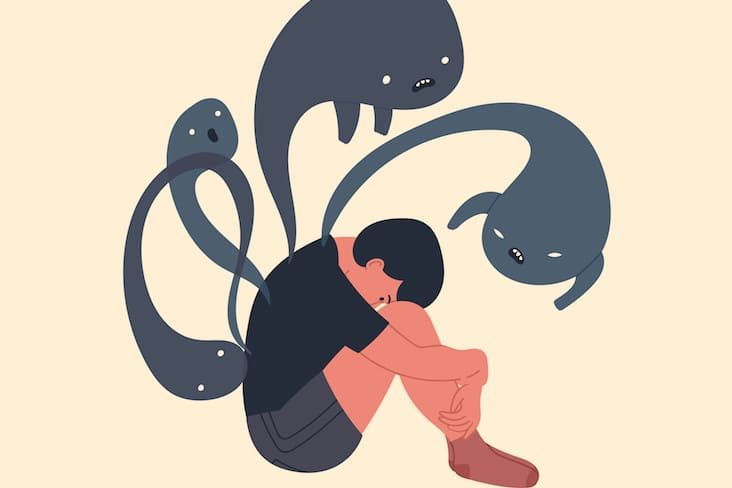你真的對治療產生抗拒了嗎? | Are You Really Treatment Resistant?
MHACC 雙語部落格 Bilingual Blog
Scroll down for the English Version ⬇️
作者:Mark D. Rego 醫學博士
原始來源:https://www.nami.org/medications/are-you-really-treatment-resistant/
2021年9月20日
在精神醫療實務中,醫師經常會聽到相同的擔憂:「我什麼方法都試過了,但都沒有效。」說這句話的病人可能罹患任何一種心理健康疾病,但他們的故事常常很相似:經歷了多年努力,卻鮮少獲得改善。
在耶魯大學進行臨床實踐並教授精神科住院醫師藥物使用經驗的這些年來,我聽過太多這樣的故事。許多人被貼上「治療抗拒」的標籤,卻未經過完整的病史檢視,因此漸漸失去康復的希望。
我希望分享我如何評估那些被認為「治療抗拒」的病人——這是我建議每位懷疑自己屬於此類病患的人都可以參考的方法。
資料收集
在這篇討論中,我們假設你自己、你的現任醫師以及過去的醫師們都一致同意你的診斷。此時,你可能陷入一種不斷嘗試更新穎、罕見藥物的循環中——而且可能被困在「這個試試、那個也試試」的心態裡。
這種情況下,你需要的是全面性地回顧你的病史,包括以下資訊:
- 你自己提供的資料
- 過去的治療紀錄
- 藥房的配藥紀錄
- 一位協同報告者(例如你的親人或朋友,能提供另一種觀點)
有些臨床醫師可能會對使用協同報告者感到擔憂,因為他們希望保護與你的保密關係。但我發現,大多數人都樂於讓配偶、朋友或其他家庭成員成為治療團隊的一部分。
無論你與醫師分享什麼資訊,這些內容仍然是保密的;然而,親近你的人可以提供你與醫師都無法得知的觀察,這可能非常有價值。例如,他們可能知道某個藥物讓你看起來恢復了原本的樣子,或重新對某個興趣產生熱情。由於你自己經歷了情緒的高低變化,或醫師每週只能見你一次,很容易錯過這類關鍵資訊。
當這些資訊逐步彙整後,醫師就可以建立一份病史時間軸,特別著重於以下問題:
- 症狀何時出現?不同時期是否有變化?
- 曾接受哪些治療?(例如治療方式、不同的治療師等)
- 曾使用過哪些藥物?劑量與服用時間為何?
- 是否有所改善?哪些症狀改善了?是否完全消失?
- 是否出現副作用?副作用持續多久?是否無法忍受或有危險性?是否嘗試控制這些副作用?
- 在使用藥物期間,劑量是否有增加?是否曾因反應不完全而放棄使用?
- 是否有加成療法(即添加第二種藥物)?若有,加成後的效果、副作用如何?
為何需要這麼詳細?因為這份病史整理,能集中呈現你曾經經歷過的治療,對於後續治療非常有參考價值。你可以隨時查閱這份紀錄來指引未來的治療方向。對醫師來說,花時間整理這份資料的成本比電腦斷層(CT)低得多,卻能提供比任何檢查更多的資訊。
找出尚未嘗試的選項
我們在這份檢視中真正要找的,是你過往治療中的「漏洞」——也就是你尚未獲得的照護方式。根據我的經驗,大多數個案其實都有明顯的漏洞,而這些漏洞可能代表病人並非真正「治療抗拒」。
這些漏洞包括:
- 尚未嘗試的藥物
- 尚未嘗試的劑量增加
- 醫師未檢查的藥物血中濃度
- 沒有加成處理的部分反應或適當劑量
- 沒有處理的副作用
- 對部分療效未進一步優化的嘗試
這些歷史的某部分可能與醫師的可用性有關。如果醫師無法在預約時間之外提供聯繫(例如沒有緊急聯絡管道),他們很可能會錯過「補漏洞」的機會。例如,調整劑量以減少副作用或改善療效,常常只需要一通電話。結果卻可能是病人因副作用或無效而中止藥物,雖然其實可以輕易解決。
因此,找一位願意在預約之外接電話的醫師,可能會帶來更好的治療機會。
在這段等待與重新評估的週期中,你可能仍然感到不適。如果情況允許且安全,可以在此期間先針對焦慮或睡眠問題進行處理。這類干預通常效果快速,研究也顯示它們不但能讓病人感覺更好,還能降低自殺風險。如果你的醫師未主動提起,請主動與他們討論。
建立治療計劃
這項工作可能會讓人覺得瑣碎繁瑣。但幾次會談後,你可以根據過往治療反應,加上臨床研究與經驗,擬定一份實際可行的治療計劃。過去的治療經驗不必視為「完全失敗」,每一次嘗試都能幫助醫師更了解你的大腦運作,並建立未來的治療方向。
這種從每一次治療中彙整資料的過程,應該持續進行,直到你不再需要心理健康治療。正是這些細節,才能幫助你的醫師找出最有效的方式幫助你。
Mark D. Rego 醫學博士 是一位擁有30年經驗的精神科醫師,曾從事臨床工作25年。他著有《Frontal Fatigue:現代生活與科技對心理健康的影響》(預計於2021年10月出版)。你可以透過他的網站了解更多資訊。
Written by: Mark D. Rego MD
Original Source Here: https://www.nami.org/medications/are-you-really-treatment-resistant/
September 20 2021
In psychiatric practice, providers often hear the same concern: “I’ve tried everything, but nothing works.” The patient giving this history could have any mental health condition, but the story is, unfortunately, the same: They put in many years of hard work without much relief.
After years of clinical practice and teaching medication use to psychiatric residents at Yale, I have heard this story too many times. Often, people will receive the label of “treatment resistant” without a thorough history review, and, as a result, they can lose hope of getting better.
I’d like to share how I evaluate patients concerned with this label — an approach I recommend to anyone who considers themselves treatment resistant.
Collecting Information
Let’s assume for this discussion that you, your clinician and your past clinicians all agree on your diagnosis. At this point, you may be caught in a spiral of trying newer and more uncommon medications — and you may be stuck in an unfortunate “try this-try that” mentality.
What you need in this situation is an extensive review of your history using:
- Information that you provide
- Past treatment records
- Pharmacy records
- A co-reporter (a loved one who can provide an additional perspective)
Some clinicians may be concerned about the use of a co-reporter, as they wish to protect the confidential nature of their relationship with you. But I’ve found that most people are happy for a spouse, friend or another family member to be part of the team.
Whatever you tell your clinician remains protected and confidential, but someone close to you will have a perspective that neither you nor your clinician will have, and this can be invaluable. They may know, for instance, that on a certain medication you seemed like yourself again, or that you were interested in your hobby. It is easy for you (who has experienced many shades of good and bad) or a clinician (who sees you only once a week or less) to miss this vital information.
As the information becomes available, your clinician can put together a timeline of your history with special attention to questions such as:
- When did symptoms occur? Were they different at different times?
- What treatments have you tried? (i.e., therapy styles, different therapists, etc.)
- What medications have you tried? What doses and for how long did you take them?
- Did you feel better? If so, in what way? Were all symptoms gone, or just some?
- Were there side effects? If so, did they last? Were they intolerable or dangerous? Were attempts made to control them?
- While on medication, were doses increased? Did you have partial responses that were abandoned because they were inadequate?
- Was augmentation (a second medication) added to any existing medication regimen? If so, what happened? (all the same questions about effects and side effects apply)
Why all this detail? For one, this detailed history of what has happened to you, in one place, is very valuable. You can refer to this document at any time to guide your treatment. It costs less than a CT scan for a clinician to put this together, yet it gives more information about treatments than any test we have.
Seeing What Options Are Left
What we are really looking for in this review are holes in your treatment — things that are missing in the care you received. I can say from experience that most cases have significant holes that could mean a patient is not necessarily treatment resistant.
Holes come in the following forms:
- Medicines you have not tried
- Dose increases you have not tried
- Drug levels your clinician did not check
- Partial responses or adequate doses that your clinician did not augment
With a second drug:
- Side effects that your clinician did not manage
- Partial responses that your clinician did not push to improve the result
Part of this history may be due to the availability of the clinician. If there was no available contact outside of appointments (that is, no on-call care), they will most likely miss any chances for “hole-fixing.” Often, this is a missed opportunity to make dose adjustments for side effects or inadequate dosing. As a result, a patient will stop a medication due to a side effect or lack of improvement, when either of these could have been taken care of with a phone call.
It may be worth searching for a clinician who is willing to make time outside of scheduled appointments for phone calls when needed.
I will also mention that during the weeks of this work, you may still not feel well. If safe and appropriate, it is a good idea to treat for anxiety and sleep during this waiting period. This can often be done quickly and has been shown to not only help the patient feel better, but protect against suicide attempts. Make sure to discuss this with your clinician if they do not bring it up.
Creating a Treatment Plan
This work can be tedious. But after a few sessions, you can create a plan that is based on your responses to treatments with reputable studies and experience to back it up. Past treatments do not need to be seen as total failures. Each one tells the clinician something about how your brain works and builds the future of treatment for you.
This process of gathering information out of any treatment should continue as long as you receive mental health treatment. It is these details that inform your clinician about what will help you the most.
Mark D. Rego, M.D., is a psychiatrist with 30 years of experience. He spent 25 years in practice and has written a book, “Frontal Fatigue. The Impact of Modern Life and Technology on Mental Illness,” to be published in October 2021. You can learn more about his work at his
website.
Sign up for our Newsletter
訂閱每月簡訊獲得最新資訊
Contact Us












